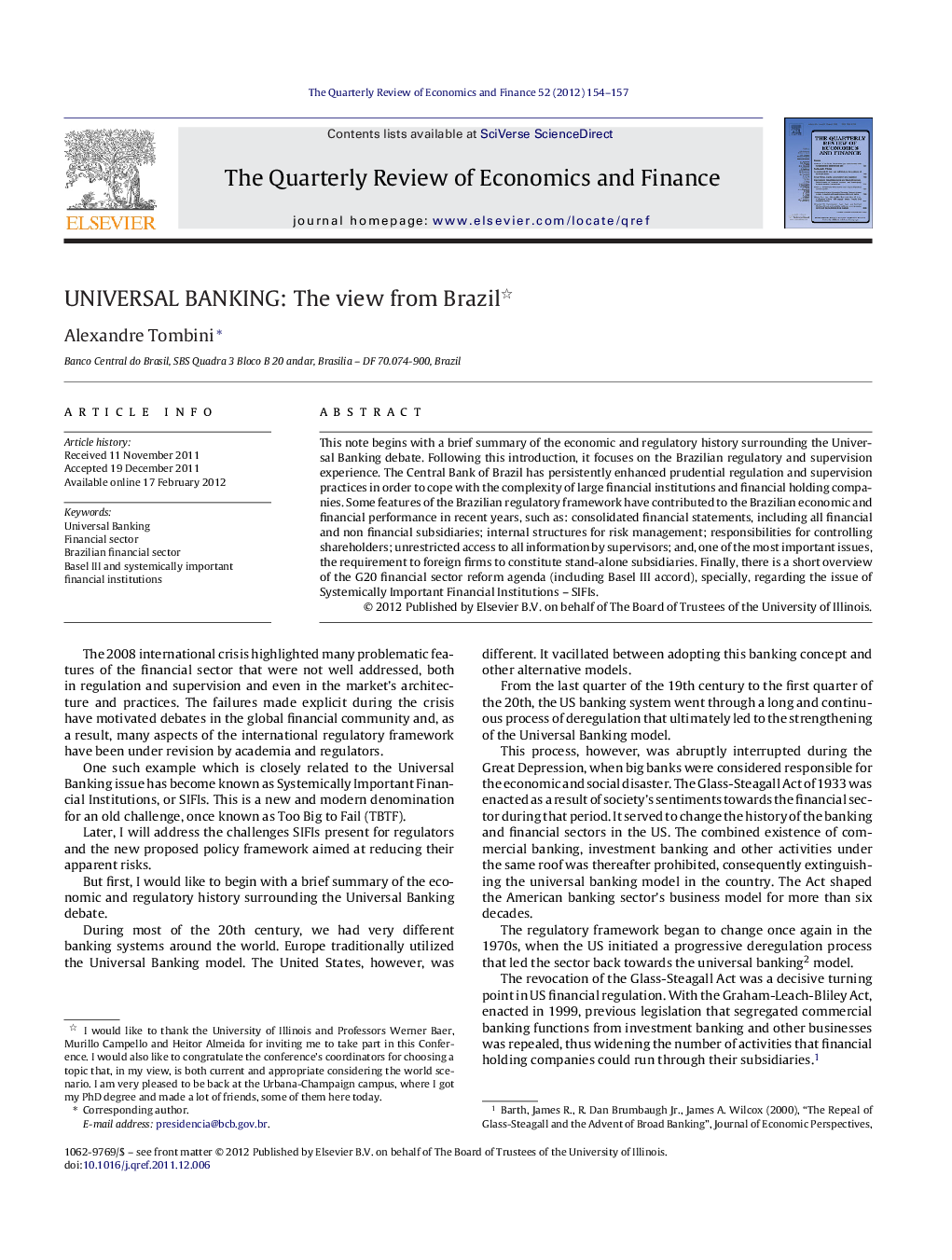| کد مقاله | کد نشریه | سال انتشار | مقاله انگلیسی | نسخه تمام متن |
|---|---|---|---|---|
| 980389 | 1480456 | 2012 | 4 صفحه PDF | دانلود رایگان |

This note begins with a brief summary of the economic and regulatory history surrounding the Universal Banking debate. Following this introduction, it focuses on the Brazilian regulatory and supervision experience. The Central Bank of Brazil has persistently enhanced prudential regulation and supervision practices in order to cope with the complexity of large financial institutions and financial holding companies. Some features of the Brazilian regulatory framework have contributed to the Brazilian economic and financial performance in recent years, such as: consolidated financial statements, including all financial and non financial subsidiaries; internal structures for risk management; responsibilities for controlling shareholders; unrestricted access to all information by supervisors; and, one of the most important issues, the requirement to foreign firms to constitute stand-alone subsidiaries. Finally, there is a short overview of the G20 financial sector reform agenda (including Basel III accord), specially, regarding the issue of Systemically Important Financial Institutions – SIFIs.
Journal: The Quarterly Review of Economics and Finance - Volume 52, Issue 2, May 2012, Pages 154–157